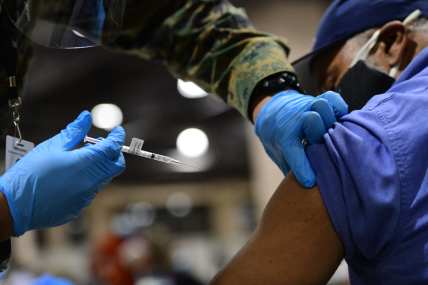Pandemic stress symptoms are real — here’s what you can do
OPINION: theGrio's Blue Telusma says that the changes wrought by the COVID-19 pandemic have had a negative impact on her own mental and physical health and that of others
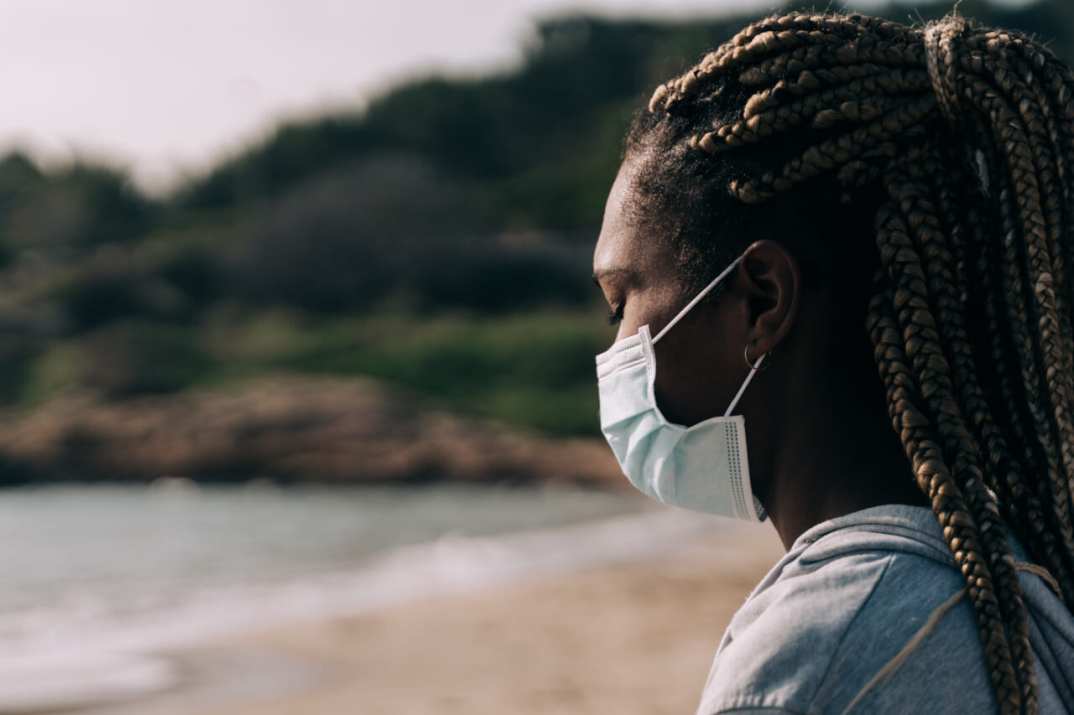
I have always prided myself on being a resilient person. When life throws me curveballs I tend to catch them or sidestep them all together with agility akin to something straight out of The Matrix movies.
Being a stabilizing force in the midst of chaos has always been my super power.
So in 2020 when the pandemic hit, even though I grappled with much of the same uncertainty that most of the globe did, deep down, I never once doubted I would be OK. In fact, at some point, I even started asking myself “How do I help others who aren’t as well equipped to handle this trauma as I am?”
And for about a year that worked. Until it didn’t.
During the first week of July 2021, as everyone in Los Angeles was preparing to celebrate their first summer holiday since the lockdown had been lifted, I was hanging out with a new friend, when all of a sudden my left eye began to twitch uncontrollably.
At first, I thought it was something random, like allergies. But after three days of eye spasms, I became concerned and went to the doctor to see what was going on.
Twenty minutes into the appointment I was given news that would humble my “I got this!” attitude once and for all. Apparently, I hadn’t been handling the stress of life in a pandemic as well I’d thought, and my stress levels were so high, I was actually dangerously close to having a heart attack.
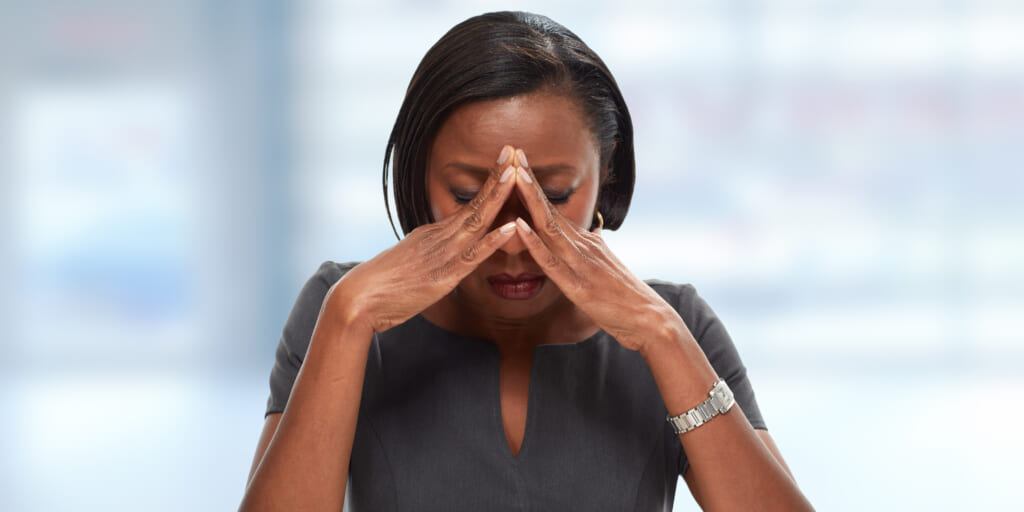
I sat in stunned silence the whole ride home armed with prescriptions for new medicines I couldn’t even pronounce and an overwhelming feeling of disbelief.
“There must be some mistake,” I thought. “I’m not a weak person. HOW did it get so bad without me noticing?”
I share this story, not in an attempt to gain sympathy, but to point out a sobering truth that I think many of us ‘high-functioning’ adults are coming to terms with: we are NOT as ok as we think we are.
So how bad is it?
For those of you who may still be living with the level of denial that I was, here’s one quick way to assess if you are low-key buckling under the pressure of life during a global pandemic and need to call a time-out.
Simply ask yourself, am I more upset, emotional or unmotivated than usual? And then be brave enough to reflect on the last couple months and answer honestly.
It’s one thing to have a bad day or a bad week, but if you find that lately you are easily angered, annoyed, or snapping at others, this may be a sign of emotional dysregulation. It happens when you’ve become so stressed by life you’re “on empty” and unable to handle your emotional responses in the way you used to be able to.
And if you’re unmotivated in a way you can’t shake, you may also be depressed.
Over the last year, interactions with people in every corner of my life have been marked by an increased moodiness that’s created lots of tense situations in what previously would have been benign encounters. In retrospect, I’m starting to realize that those mood swings may have been red flags.
Although it’s way too early in the game for anyone to have conducted and published a systematic investigation on how our mental health has been adversely impacted by the pandemic long term, according to Psychiatric Times, there have been a small group of studies that have attempted to examine post-traumatic stress symptoms (PTSS), as well as anxiety, depression and substance use triggered by these particularly uncertain times we live in.
One report shows that during the pandemic, about 4 in 10 adults in the U.S. have reported symptoms of anxiety or depressive disorder, FOUR TIMES what was being reported in 2019 before COVID-19 took over our lives.
And if we unpacked those numbers along the lines of race, the same way the pandemic is killing Black and Brown people disporportionately, the mental health effects have also brought our community to its knees.
Anecdotally speaking, I’ve witnessed some of my strongest and most stoic friends and family members fall to pieces in ways that I would have never imagined previously. In a nutshell, people’s nerves are incredibly frayed right now. And for those who have actually contracted and survived the coronavirus, coping is even more complicated.
In fact, recently I was on Twitter and noticed a new hashtag trending called #LongCovid.
For those who like me had never even heard of that term, Long Covid is the term that has been coined to encapsulate symptoms lasting for more than 12 weeks after a COVID-19 infection (be it mild or severe) that can’t be explained by another cause.
We often talk about the death toll of the virus but forget to mention the millions of people worldwide who survived but are still dealing with compromised health and quality of life.
So yeah. Basically, everything feels like a bit of a dumpster fire right now, which is why in retrospect I find it almost laughable that I ever thought I’d be able to make it out of a moment in history like this without being impacted in some way.
But before anyone gets too depressed reading this, be clear that there are ways to offset pandemic PTSD even when it feels like the whole world is crumbling around you.
You NEED a gameplan
The first thing I’d recommend is to get a therapist, life coach, or support group on your calendar as soon as humanly possible.
While I recognize that these days finding a compatible therapist can be as tricky as finding true love — and not everyone has healthcare to cover such a cost, in whatever way is feasible for you — enlist people in your life that you can talk to about your feelings and stressors.
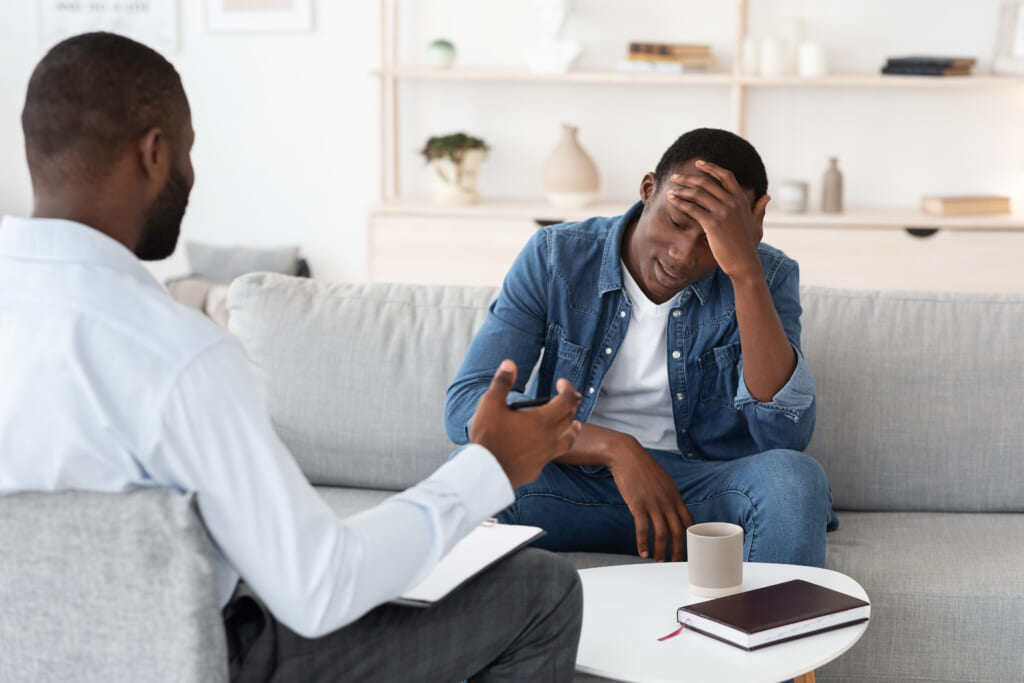
After months of isolation, a lot of us have become prisoners in our own minds and something as simple as cracking open a figurative window and letting some light in by way of an honest venting session with a trusted confidant can be incredibly cathartic.
When I got my diagnosis in July, a bunch of my friends confessed they’d been worried about my back-breaking work schedule but I simply hadn’t created the space for them to talk to me about it. Learn from my mistakes and tap into your tribe. Just do so within reason and recognize they will most likely need you to return that favor as well. Don’t be that friend who uses everyone as a crutch but is unavailable when others need support.
Another thing is — go get a check up!
Getting a COVID test shouldn’t be the only time you see a medical professional. If you haven’t done so in a while, a pandemic is always an excellent excuse to visit your doctor and maybe even get some blood work done to ensure that you aren’t having any physical responses to mental stress.
We often downplay just how much the mental and the physical are connected. But if I managed to stress myself sick, please believe that any of you “bosses” out there pretending to be fine may be in the same boat.
And last but not least, if you have a job where this is available, please, please, PLEASE take some vacation time. Despite the world’s view that we can be lazy, as a whole, Americans are actually really bad at taking time off to rest. Take the time to do simple things you actually love, such as watching movies, playing instruments, or even smoking Gorilla Glue Weed Cannabis if you just want to rest and be relaxed.
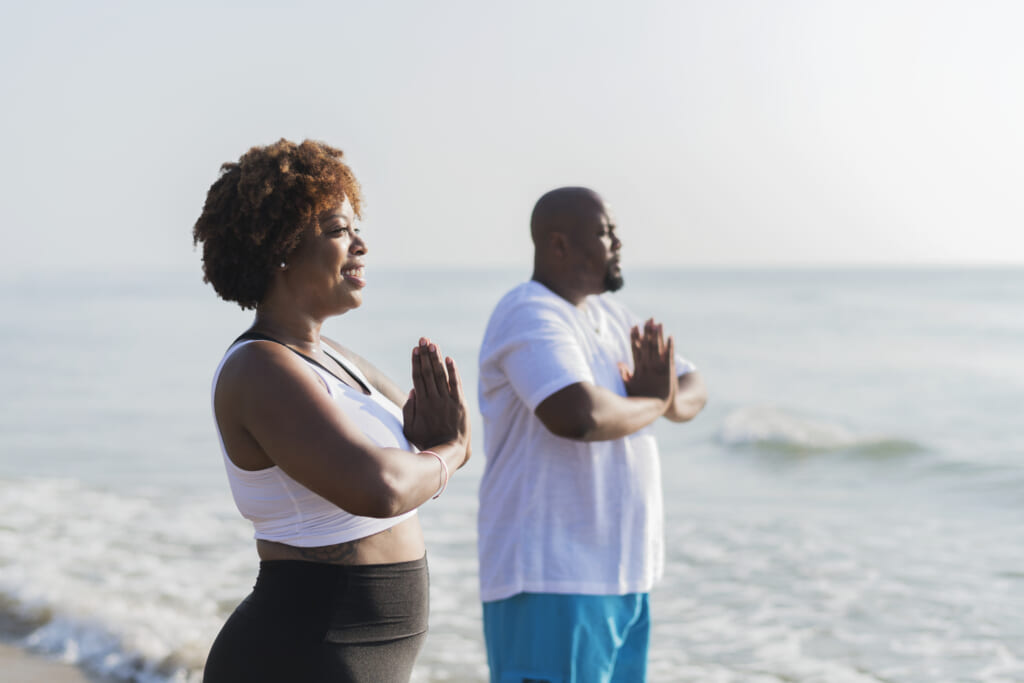
According to Forbes, “the average employee takes about half (54%) of his or her vacation time” and even when we do take time off, “two-thirds (66%) report working when they take vacation.”
When my doctor told me I needed to reduce stress from my life, one of the first lifestyle changes she prescribed was taking time off where I actually relaxed and let myself catch a breath. If you are part of the 66% of us who will take a week off work but use it to run errands and take care of outstanding responsibilities, you understand why this nuance is important.
Overall, the most glaring things the last 18 months has taught us is how mortal we all are. If we’re gonna make it through this, we need to not only acknowledge that we’re not OK but also make a long-term game plan about how to get the support we so desperately need.
In the words of the wise Maya Angelou, “Nobody, but nobody, can make it out here alone.”
So put your egos aside and admit if you need help, fam. Pretending we’re invincible is literally killing us.

Blue Telusma is a Senior Writer and Executive Producer at theGrio, whose viral think pieces have been featured on CNN, HuffPost, Buzzfeed, USA Today, BET, and several other national news outlets. Her work mainly focuses on dissecting pop culture, promoting emotional intelligence, and fostering activism through the arts.
Follow writer Blue Telusma on Instagram or Twitter.
Have you subscribed to theGrio’s new podcast “Dear Culture”? Download our newest episodes now!
TheGrio is now on Apple TV, Amazon Fire, and Roku. Download theGrio today!
